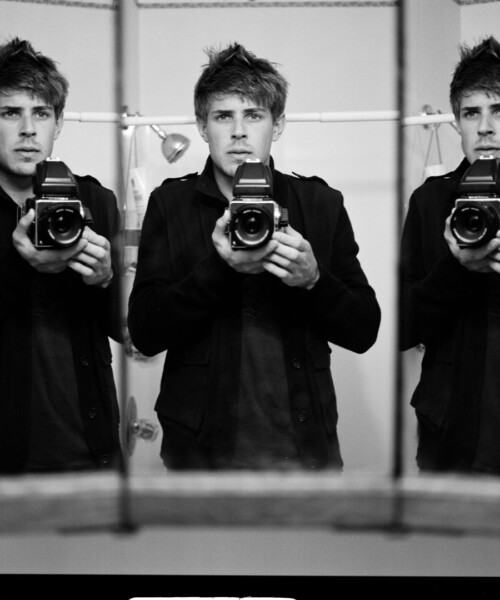Chris Lowell is used to being in front of the camera; he’s appeared in everything from Grey’s Anatomy to The Help and Veronica Mars. But when it comes to working behind the scenes, he’s still a novice. Or he was before Beside Still Waters, a new film that Lowell not only wrote (alongside his writing partner Mohit Narang) but also directed.
The film tells the story of a group of longtime friends who’ve congregated for one last weekend together at a beloved family home that’s about to be sold. But, of course, things aren’t quite what they seem and, over the course of the film, deeper issues emerge—albeit at times with hilarious results.
Here, Lowell talks writing, directing and just how many of the characters are based on his real-life friends.
So, you’re jumping from actor to writer-director. How did that happen?
It really began as an exercise in seeing whether or not my writing partner and I could write together. It was the first thing we were collaborating on, and we were up at my family’s house in North Georgia, where I grew up and a lot of my friends grew up, and we were brainstorming about what story we wanted to tell. We started talking about things that made us afraid, like, what if we lost this house and what if we lost our friends?
It began entirely as fiction and then, coincidentally, within the year my parents actually sold the house and moved away, and several of my friend’s parents started getting sick, and suddenly, this fiction became much more of a reality.
This being your first go round together, did the writing process flow or did you have to force yourselves to collaborate?
We have a very unusual way of writing, which is that we design a meticulous outline together and then we go off separately and each write an entire full-length screenplay by ourselves. Then, we send that to the other person to read over before we get together and create a version combining the two screenplays. What’s wonderful about it is that it gives each of us the freedom to explore certain ideas we have without having them get shut down too early, and also, kind of gives us a two-for-one offer. We get twice the amount of words for one screenplay.
It’s impressive that your first attempt at a screenplay ended up a real, live movie.
It’s shocking. To be honest with you, I don’t think we ever thought it actually would become a movie. It began as more of an exercise.
How much of what ended up on screen is autobiographical?
This is, I think, standard fare for first timers: when Mo and I were writing the first draft, there was so much of us and our friends in the early story. It was really a shortcoming for us because we were way too cautious about certain things. We were way too worried about being offensive in other places, and we kind of had to let that go, let the characters be flawed, imperfect, broken and ugly. That allowed the story to grow exponentially, and quite honestly, become a much more interesting read. As far as the autobiographical element, there are a lot of things in the film that are very close to things that have happened in our lives.
Like when the characters play Whiskeyslaps, the drinking game that involves taking a shot and then smacking your friend across the face?
It started when we were in college. We were going through some bottle of horribly, terribly cheap whiskey. We were passing around a chaser; we ran out of the chaser. I said very openly that I couldn’t have another sip of this disgusting whiskey unless I had something to chase it with, and my friend Lindsay said, “Just take the shot, and I’ll slap you across the face, and you won’t think about the shot at all after that.” I agreed, and it seemed like a brilliant idea at the time.
You are aware that you’re going to have to revisit that at some sort of opening night party for this, right?
I had to do 50 personalized ones for our Kickstarter campaign. I don’t have a face anymore.
What was your biggest takeaway from this project?
It’s funny, I feel like you’re always told you’ll learn so much from your first movie going into your second, and stupidly, I thought that I was somehow going to bypass that because so much of the fundraising, photography, and editing process was pretty seamless. That’s not because I necessarily knew what I was doing as much as that I was surrounded by very talented, hardworking people. Where I really think I learned my biggest lesson though was in the marathon that is required once the movie is actually finished to getting it to distribution. That was a huge eye-opener for me. I had no idea really just how much more work is involved. I was delusional; I was insane thinking that way.








































